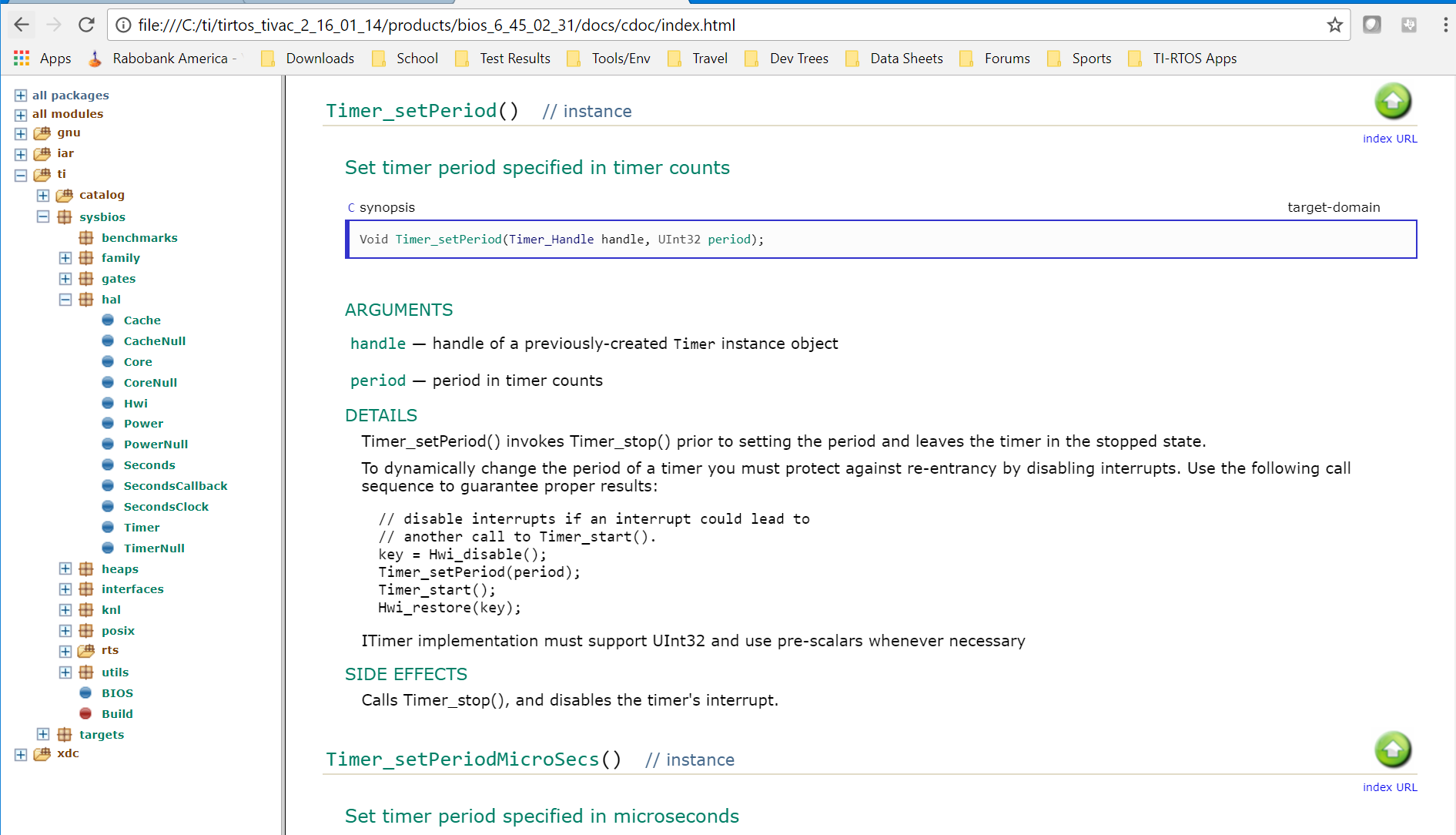Tool/software: TI-RTOS
Hi,
I have configured 32 bit timer 5 as shown below,
SysCtlPeripheralDisable (SYSCTL_PERIPH_TIMER5);
SysCtlPeripheralReset (SYSCTL_PERIPH_TIMER5);
SysCtlPeripheralEnable (SYSCTL_PERIPH_TIMER5);
SysCtlIntEnable(SYSCTL_PERIPH_TIMER5);
while (!SysCtlPeripheralReady (SYSCTL_PERIPH_TIMER5))
{
}
/* Set timer3 to a 32-bit periodic up counter driven from the system clock */
TimerClockSourceSet (TIMER5_BASE, TIMER_CLOCK_PIOSC);
TimerConfigure (TIMER5_BASE, TIMER_CFG_A_PERIODIC_UP);
TimerMatchSet(TIMER5_BASE, TIMER_A, 0xFFFFFFFF);
TimerLoadSet (TIMER5_BASE, TIMER_A, 0x4C4B400);
TimerIntRegister(TIMER5_BASE, TIMER_A, &ModbusWatchdogISR);
TimerIntEnable(TIMER5_BASE, TIMER_TIMA_TIMEOUT);
TimerEnable (TIMER5_BASE, TIMER_A);
Inside ISR handler, I have cleared the timer interrupt. I have set stack size 15KB in .cfg file.
Program.stack = 15360;
My program is getting terminated after turning on the timer showing stack out of bounds. The console window is as shown below,
The debug window is as shown below,
The task detail from ROV is attached below,
Please help me to get out of this error.
Expecting your quick reply,
Thanks & Regards
Sandra


